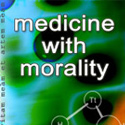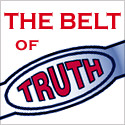Cloning – What Do We Need to Know?
We decided to talk to Dr Lachlan Dunjey, a medical practitioner who was President of our Baptist Churches in 1989-90 and has been one of our spokespeople in matters of ethics and morals.
We’ve all heard about Dolly the sheep – how close are we really to cloning human beings?
The recent announcement by a U.S. research firm of a human embryo being cloned seem to suggest it’s very time is close. Some scientists have questioned the cloning so we just don’t know the degree of their success. It took almost 200 attempts to get a ‘successful’ Dolly. However developments in this field are gathering speed, so it won’t be long before true cloning of human beings is achievable.
Why should we be concerned about this? Can’t cloning technology be used for good purposes?
This is the dilemma. The potential for evil is huge. But so is the potential for healing. Adult tissues can be repaired using ‘stem cells’ – cells that have not yet specialised into individual organ cells like heart cells or liver cells. Think of being able to repair severed spinal cords and brain! And that brings us to the heart of the dilemma.
You mentioned evil – would you enlarge on that?
An obvious kind of evil would be to clone people for special tasks with evil intent. Another kind would be to sacrifice a clone and use it’s heart to replace a diseased heart.
So, should we not have advances in biotechnology at all?
When Stevenson designed his ‘Rocket’ – the first steam engine to run on rails – people objected and said that if God wanted us to move on rails he would have created us with wheels. It has always been a challenge to use advancing technology for good rather than evil and that is our challenge today.
How can we judge what is right and wrong?
There are certain Christian principles that apply which I think most people innately accept (but might try to deny). The most fundamental of these is that life is a valuable gift that should be treated with respect and dignity. Yes, we have an obligation to improve health, but the boundary which should not be crossed is where we interfere to destroy life or to create it in a way alien to God’s blueprint. Cloning crosses that boundary.
Its complex, isn’t it?
Indeed it is. It can be argued that gene replacement therapy for a child with a genetic predisposition to diabetes is responsible as long as it doesn’t involve use of embryonic cells. However, if we use the same technology to enhance muscle power for the creation of super-athletes or fighters, then that is wrong.
We have seen very prominent people in recent times pleading for the use of embryonic stem cells for treatment of Parkinson’s disease and spinal cord injury. How can we deny them this opportunity for treatment?
This question is based on the false assumption that the only way of getting good stem cells is from embryos. This is not true. There are many research labs managing to isolate and culture stem cells from adult tissues and reports of success are being reported regularly. But this is not as ‘romantic’ and adventurous as using cloning technology.
How dangerous do you believe this technology to be?
Ultimately, people using biotechnology without ethical boundaries and without any restraint from God will seek more and more to be in control of life and death. This is the new Tower of Babel, i.e. man seeking to be independent of God, to do things our own way and to be our own gods.
Biotechnology breakthroughs make for exciting news. The problem is that we are already at the point of technology where the voices of restraint are not being heard, or are labelled as anti-progress and uncompassionate. But these accusations are lies and need to be refuted. We need as Christians to be awake and, if we can’t do anything else, we at least need to pray that God will stay the hand of evil.






